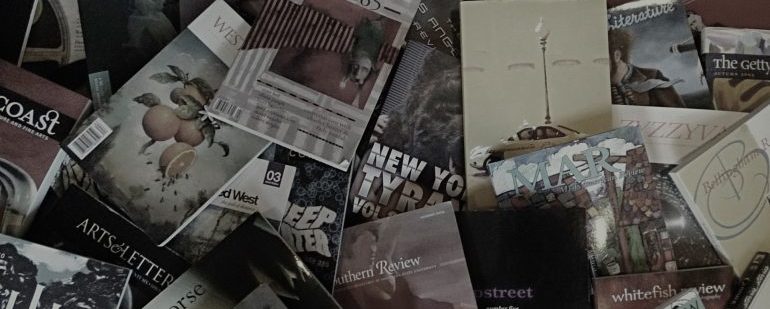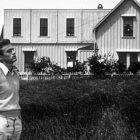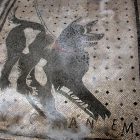The Best Short Story I Read in a Lit Mag This Week: “Wind on the Moon” by Katie Burgess

We are a world awash with conspiracy theories, but what resides in the hearts of those behind the actual conspiracies? In her flash fiction piece, “Wind on the Moon,” (New Orleans Review) Katie Burgess explores the internal struggle of a governmental doctor of spin.
Burgess opens the piece with her narrator arguing, once again, with the moon.
“We did it so America could feel proud again. That’s what I tell myself whenever the silvery light shines through my window, going liar liar liar liar. I say, I have nothing to atone for. I say, No one should harbor guilt over what’s done for America.”
Notice that Burgess opens by detailing the narrator’s internal conflict, yet without revealing what the arguments is over. This serves to focus readers on the nature of the rationalizations rather than their subject, highlighting an ethical quandary universal to every citizen of any country: whether or not their nation’s indiscretions can be justified by arguing that they serve their nation’s larger interests and/or concept of good.
Next Burgess reveals the focus to the subject of the narrator’s argument with the moon (read: himself), which then informs us of the identity of the narrator.
At the time we didn’t consider the ethical questions, just focused on making it happen. My creative partner Jimbo repurposed props left over from an elementary school play about the solar system. I built a lunar module from cardboard and aluminum foil. We interviewed dozens of struggling actors and asked how well they could keep secrets and would they like to be United States heroes.
Burgess reveals that the conflicted narrator was in fact partially in charge of faking the moon landing. First, this brings clarity to the title, which references one of the primary arguments used by those arguing that the moon landing was staged: Why is the American Flag waving in video footage when there is no wind on the moon? It also shifts the tone of the piece from serious to comic. While this switch in tone lessens the potential intensity of the opening quandary—imagine how heavy the story would become if it dove into one of the many politically charged conspiracy theories circling around the current presidential election—it still doesn’t dismiss the nature of those questions, which still apply to the most serious of potential governmental lies. I’d argue that by focusing this quandary—do ends justify means—on a more comic conspiracy allows Burgess to do what all good satire manages to do so well: play with fire without getting burned.
My superiors brought me in on several other projects. I joined the Round Earth Belief Maintenance Committee. I took over as head of Dinosaur Bone Placement Operations. I spearheaded a task force in charge of periodically releasing nude celebrity photos, to distract the public from things they didn’t need to know about. I lost touch with Jimbo for a while. I think that’s when his troubles began, when he lost his sense of purpose and started second guessing our mission. Too much idleness will do that to a person.
Maybe I should have done the sequel. But asking what if won’t bring Jimbo back.
While Burgess introduces more levity through tongue-in-cheek conspiracies, she also injects a more solemn reality back into the story in the form of the narrator’s partner in propaganda. Jimbo, unlike the narrator, couldn’t stomach continuing to lie to the public. In fact, we discover, he ended up taking his own life as a result—or so the narrator was told. Even this the narrator tries to explain away—too much idleness will do that to a person. But as the story comes to a close, it’s clear that while he has no qualms deceiving the public for the good of the nation, the tragedy of his partner Jimbo isn’t so easy to dismiss. Burgess ends the piece with this illuminating image of the moon.
Tonight, as usual, I will wait until my wife and children fall asleep, and I will go outside. I will sit in my yard with a tumbler of whiskey, and I will stare at the moon, the big empty rock that’s been lording it over us throughout the millennia, interfering with our tides and our gravity and our werewolves. And I will pick up whatever’s handy—bricks, stones, broken bottles—and hurl it up at that glowing circle, never once disturbing its calm, untouched surface.
The narrator is someone whose life’s work has been spent shifting the tides of people’s perceptions, quietly controlling reality in ways that aren’t easy to discern with the naked eye. I’d argue that when he looks at the moon he sees a mirror image of himself. And what he sees, no matter how he might try to rationalize it away, is troubling.



